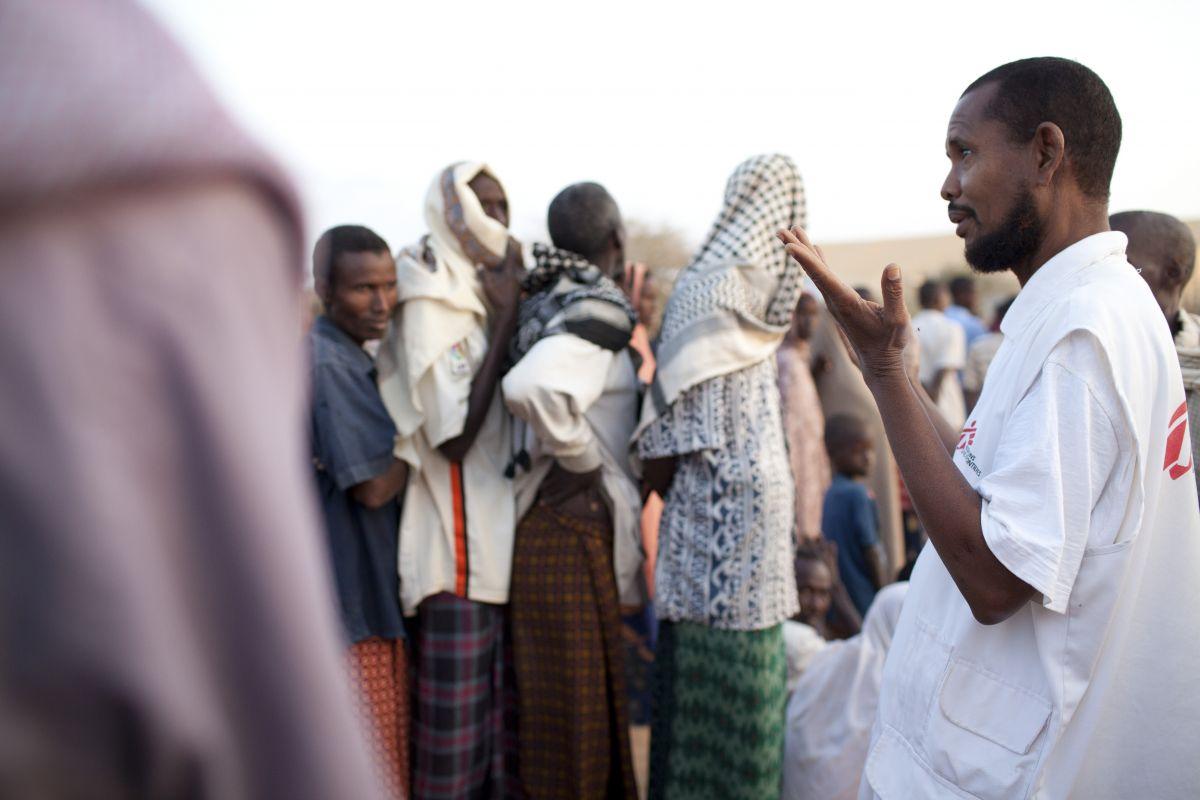MSF sent an emergency team to the Kenyan side of the border to assist the wounded arriving from the Ethiopian town of Moyale, where violence erupted on 14 December. The team is providing support to Takaba district hospital in Mandera county, which received more than 100 wounded in the three days from 14 to 16 December. MSF emergency coordinator Abubakar Mohamed, who has worked for MSF in emergencies for more than 20 years, describes the situation.
“I arrived in Takaba on Saturday [15 December]. It was overwhelming. Imagine, a 30-bed hospital receiving more than 100 patients in less than three days. No one was expecting injuries on this scale. People in the community were bringing the patients from the border in trucks, first to a small village called Erestino, where they tried to stabilise them, and then here to Takaba.
With most patients arriving severely injured and in a critical condition, Takaba district hospital was quickly overstretched. The day after the violence broke out, our team arrived in Takaba with urgently needed medical supplies, including drugs and surgical equipment for the hospital. Our priority was to put a triage system in place to ensure that the most urgent patients were taken care of quickly.
We saw patients with severe abdominal and chest injuries, and with fractures to their upper and lower limbs. All of these injuries were from gunshots.
What we are seeing here in Takaba is the severe medical impact of the violence. Patients tell us that there have been heavy clashes in the Ethiopian town of Moyale. The clashes started many months ago in July, then cooled down for some months, before exploding again, first in October and now last week. This is the third wave of the violence, and it seems to be worse than the previous ones.
Patients need to travel a long way to reach the hospital here in Takaba, and it’s too far for people with serious injuries: it’s 80 km, on a truck, in temperatures of almost 40 degrees, just to reach a place where they can get medical care.
On Tuesday, we received a patient who was wounded in Moyale at nine in the morning. By the time he arrived at Takaba hospital it was almost half past eight at night. This is far too long. We were told that several severely injured patients died on the way.
Many of the patients who have arrived at the hospital are in a critical condition. One patient’s hand was completely broken, the bones exposed and smashed. Another patient was brought in with a lacerated cheek and taken straight to the operating theatre. When I saw him after surgery, I couldn’t believe it was the same man. The care the patients receive here is amazingly good, given the difficult circumstances.
Since the moment the first wounded arrived, all activities in the hospital have been focused on the emergency response. The two MSF nurses helping with the surgeries have been working tirelessly since they arrived. Numerous medical staff from surrounding health facilities have travelled to Takaba to give a hand. The authorities have mobilised a lot of resources. They brought additional beds to the hospital and the community gave mattresses and provided food for the wounded, as well as water, soap and mosquito nets. People have donated a lot of blood, which has helped save the lives of many patients.
In the hospital we currently have 65 wounded. Most are post-operative patients, who require a lot of care. An additional 50 patients are in the ‘medical village’ in town, which we set up for ambulatory patients so as to create the necessary space in the hospital for the critical patients.
Today, the hospital looks organised again. The team is coping well. If the violence stops, we can manage the situation. But if it continues, it will be difficult. With more wounded arriving, the hospital will be congested. There is no more space to accommodate new patients. This is our main worry for the moment.
In the meantime, five more MSF staff have arrived and we have received a truck loaded with medical supplies, mostly surgical items, antibiotics and painkillers. We’ll use most of it to set up a medical post in Dandu, a town halfway between Takaba and the border, where we plan to stabilise any wounded arriving from Moyale. We want to get as close as possible to the border, to reduce the distance that patients have to travel to access medical care. But hopefully this won’t be needed. I just hope that the situation will calm down.”
ENDS
